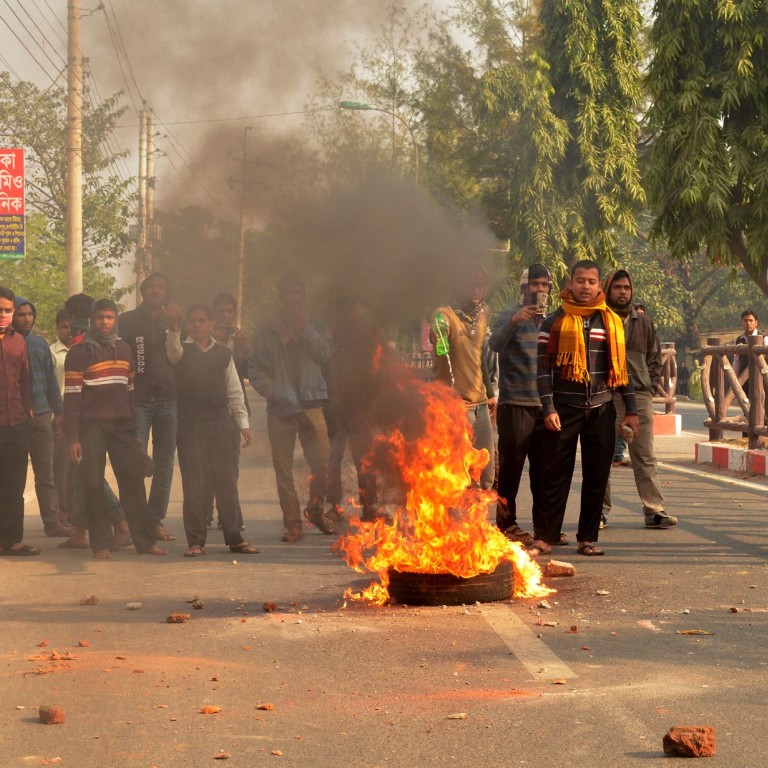
Ten more dead in Bangladesh as PM issues warning
Ten more people were killed in Bangladesh on Sunday after the execution of a top Islamist leader sparked riots and other protests, as the prime minister warned of a crackdown on the violence.
Police said they opened fire after Islamist supporters torched houses and fought street battles with officers during a third day of unrest over the hanging of Abdul Quader Molla for mass murder during the 1971 war of independence.
Three people were killed Sunday in the northern town of Patgram and another seven died elsewhere overnight, police said, as Islamist supporters enforced a nationwide strike over the execution of Molla, a senior leader of the Jamaat-e-Islami party.
“Police fired rifles after Jamaat protesters torched at least 20 houses belonging to ruling party supporters,” government administrator Habibur Rahman said of the violence in Patgram.
“We have banned protests and gatherings in the area to prevent further violence,” he added.
Molla’s execution on Thursday night triggered fresh violence in the impoverished country, already reeling from political unrest in the build-up to a deeply divisive national election scheduled for January 5.
Twenty-two people are now known to have died and dozens more have been injured in the clashes since Thursday between outraged Jamaat activists and police and between the activists and supporters of the ruling Awami League (AL).
Prime Minister Sheikh Hasina warned of strong action against the rioters, saying “We have shown enough patience. We will not tolerate anymore.”
“People of the country know how to reply to these atrocities (the latest violence), we (government) also know how to respond to, control you (the rioters),” she told a rally late on Saturday to commemorate those killed in the 1971 war of independence from Pakistan.
Molla, 65, became the first person to be executed for his role in that war. Jamaat called the hanging a “political murder” and said it would avenge it.
Convicted of rape, mass murder
Molla had been found guilty in February by a much-criticised domestic tribunal of having been a leader of a pro-Pakistan militia that fought against the country’s independence and killed some of Bangladesh’s top professors, doctors, writers and journalists.
He was convicted of rape, murder and mass murder, including the killing of more than 350 unarmed civilians. Prosecutors called him the “Butcher of Mirpur”, a Dhaka suburb where he committed most of the atrocities.
Molla was one of five Islamists and other politicians sentenced to death by the International Crimes Tribunal, which the opposition says is aimed at eradicating its leaders.
The sentences have triggered riots and plunged the country into its worst violence since independence. Some 250 people have been killed in street protests since January, when the first verdicts were handed down.
During Sunday’s violence in Patgram, two Jamaat protesters were shot dead while protesters hacked to death a ruling party supporter, Rahman said, adding that the condition of two more AL supporters was “very critical”.
Of the seven killed overnight, police said three died in the southern town of Companyganj, two in the northern town of Ramganj and one each in Narayanganj, outside the capital, and in the coastal town of Laxmipur.
At Companyganj, an opposition bastion, police fired rifles to disperse at least 8,000 rampaging Jamaat supporters who torched four government offices and attacked officers with crude bombs and guns, a senior police officer said.
In Ramganj, activists of Jamaat and its main ally, the main opposition Bangladesh Nationalist Party, attacked a convoy of ruling party lawmakers, leaving two people dead, sub-inspector Ershadul Alam said.
